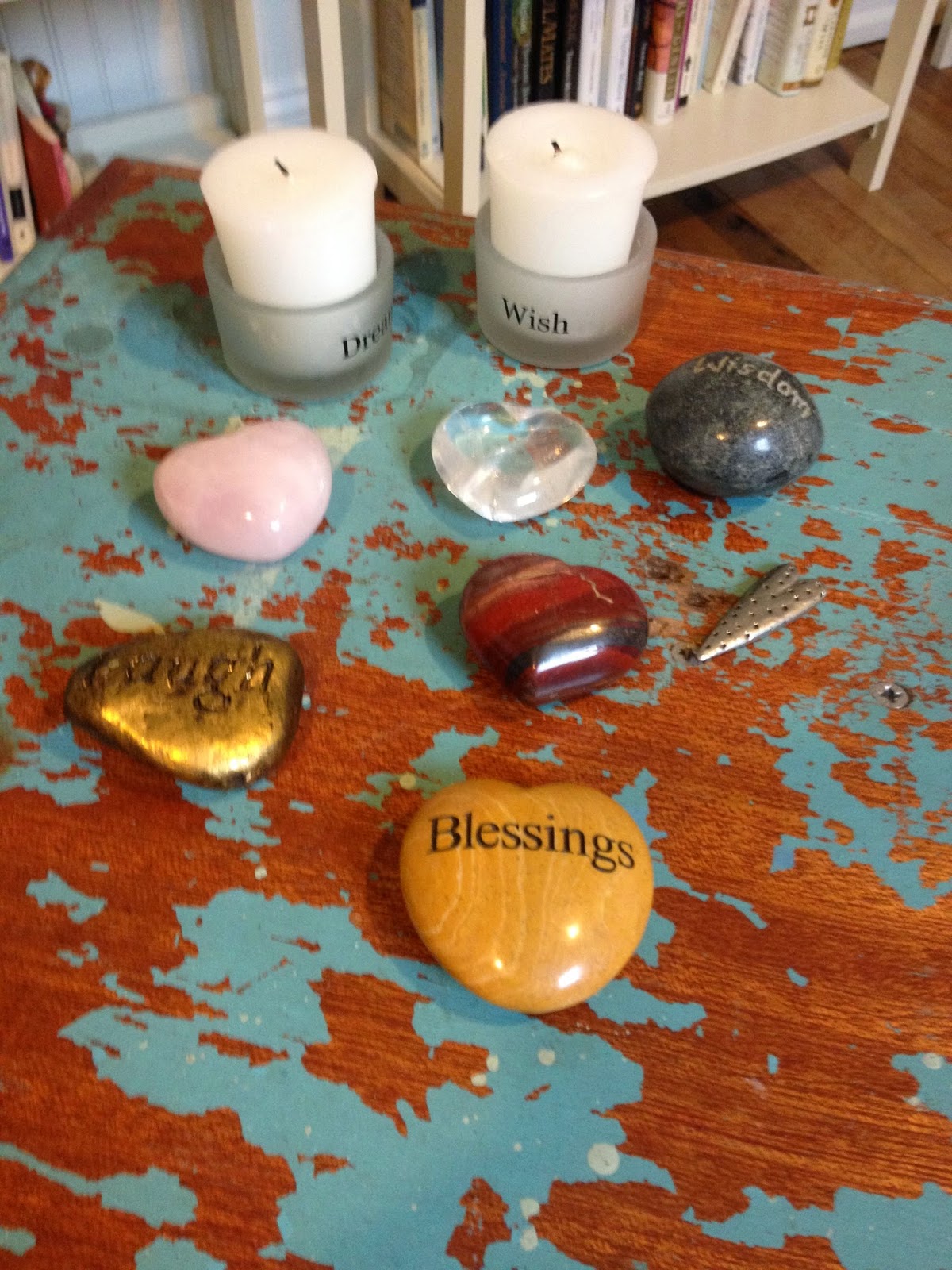 |
| Vintage Thanksgiving Candles on my Kitchen Windowsill |
Does your menu reflect old and new recipes, dishes that are required because they are someone's favorite and it wouldn't be Thanksgiving without x, y, or z or is your clan a bit more adventurous? I remember one year, decades ago, when my mother relented and said I could bring a salad. I brought a spiced fruit salad served on greens and I was never asked to bring the salad again, even though I thought it was delicious. What Mom meant by salad was what my brother calls "garbage salad," which is a jello salad of some sort, but not the kind with lime jello, carrots and celery--yuk! In our family it was not good to mess with tradition.
My daughter-in-love, Cricket, texted this past weekend asking for my recipe for sweet potatoes and pears. She said, "I know it's in your folder somewhere." Of course, it is. In my Thanksgiving folder are menus and lists dating to 2001 when we were still living at Sweetwater Farm. I wish I had noted who was sitting at our harvest table that year. I'm sure that information and other highlights of the day are in my journal, but please don't ask me to forage in the storage room for the bin of journals from that era. Was it the year Cricket's mom couldn't resist and turned over one of my vintage turkey dinner plates to see who made it? Was it the year my Dad and a dear friend's father sat in the living room and reminisced about Thanksgivings of their youth? Surely, our dear friends who were the first to reach out to us our first fall in Ohio were at the table. Yes, they were, for I see listed on the menu is Marcia's apple pie. Was this one of the years when along with the feast a main activity was the Animal Round-Up, which meant somehow moving the llamas and sheep and goats and donkey from the fenced meadow into the barn for the winter? Oh, how I wish I had videos of that annual action!
Memories and stories. Thanks for indulging me. I could go on and on, but you have your own memories to share, and I encourage you to do that today, as well. While you are waiting for the potatoes to boil or while you are basting the turkey, let the smells and the sights and the sounds of Thanksgivings past swirl around your kitchen as well. I know this day is a lot of work for the hostess and host, and all too quickly, we push away from the table not able to eat one more thing, but I hope your day will include time to remember, to honor the past, and, of course, give thanks for what has been and what is, and what is yet to come.
I know all memories are not joyful, and perhaps this year is one of those years when the past weighs heavy and the present is not easy and light either. Some years the biggest challenge is knowing when the turkey is ready, but this may not be one of those years. You may find yourself gritting your teeth if a family member says a critical word or you may discover yourself in tears, realizing this may be the last year you are all together. You may be exhausted and may not be looking forward to the weeks of holiday bustling --bustling that has already begun, in fact. You may be alone--by choice or because that is the way it is. There may be people missing from your table this year or you may not be at the table.
Still, dig deep, open your heart to a shining, glowing memory. One is enough, for in that one is a glimpse of hope and wholeness and connection. Rest in the one.
This year Bruce and I will join my sister's family for Thanksgiving dinner, and I am bringing the appetizers--my spiced nut mix, a pumpkin dip for apples and gingersnap cookies, and also pesto pinwheels made with puff pastry. I will miss not having leftovers for turkey sandwiches, but maybe soon I will fix a turkey breast and have a miniThanksgiving. What's most important is being with people I love and feeling love and gratitude for all I have in my life now, as well as all the memories of love in my life.
An Invitation
What are your first memories of Thanksgiving? What memories are like leftovers that need to be tossed? Which memories most give you pleasure and need to be shared? What memories can lead you to deeper and wider gratitude? I would love to know.
A Bonus
Casserole of Sweet Potatoes and Pears
6 large sweet potatoes, peeled and sliced 1/2 inch thick
6 ripe pears, peeled cored and cut into 8 wedges each
1/3 cup pear brandy
1/2 cup orange juice
3/4 cup (packed) brown sugar
4 tablespoons (1/2 stick) unsalted butter
1/2 cup golden raisins
salt to taste
1. Place the sweet potato slices in a pot and add water to cover. Heat to boiling. Reduce the heat and simmer uncovered just until barely tender, 12-15 minutes. Drain well.
2. Preheat the over to 375.
3. Arrange the sweet potatoes and pears in alternate layers in a medium-size casserole.
4. Combine the pear brandy, orange juice, brown sugar, butter and raisins in a small saucepan. Heat over medium heat until the sugar is dissolved and the butter melted. Season with a little salt. Pour the sauce over the sweet potatoes and pears, stirring to distribute evenly.
5. Bake the casserole until lightly browned and bubbly, about 30 minutes. Serve hot.
Makes 10-12 servings.










